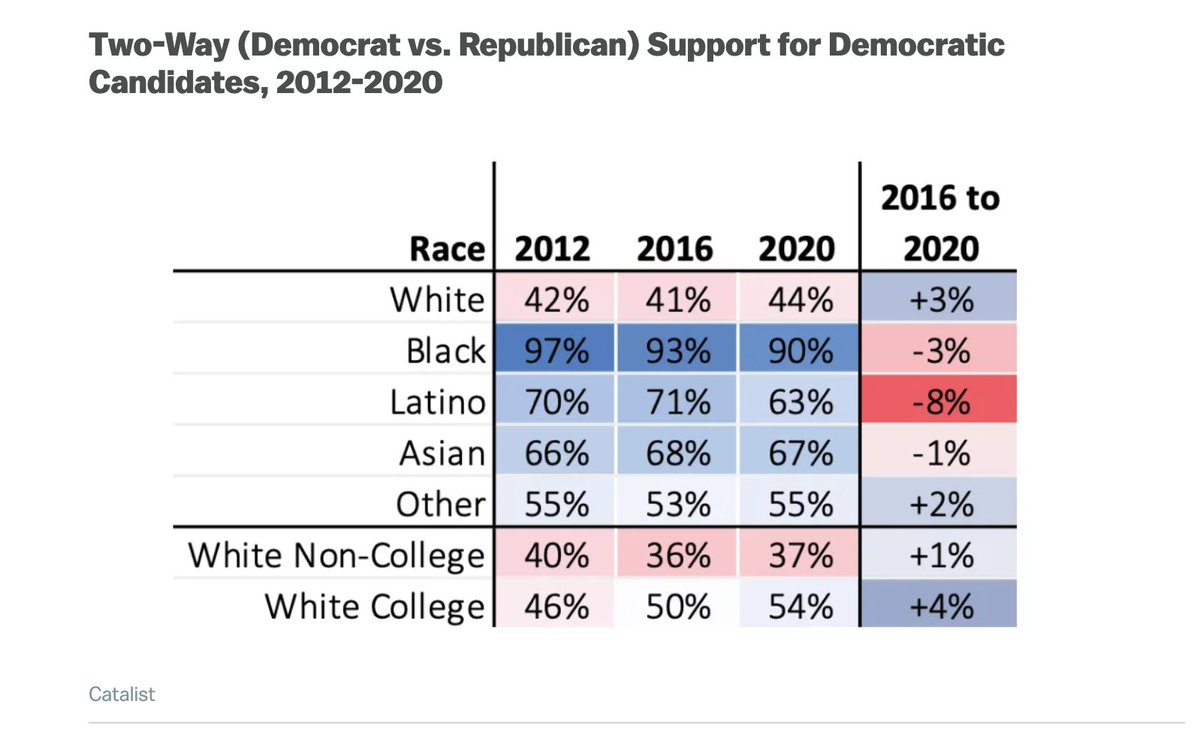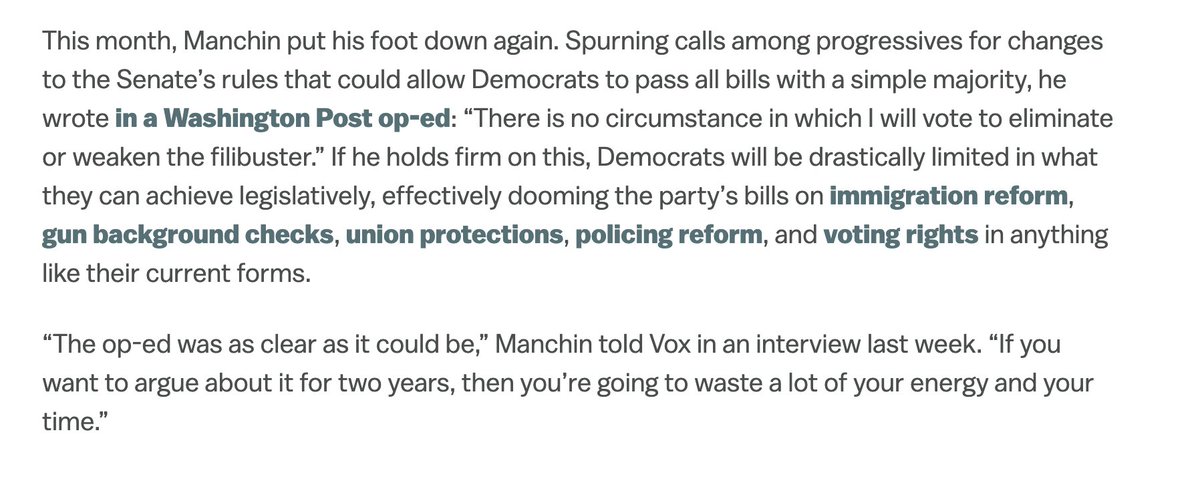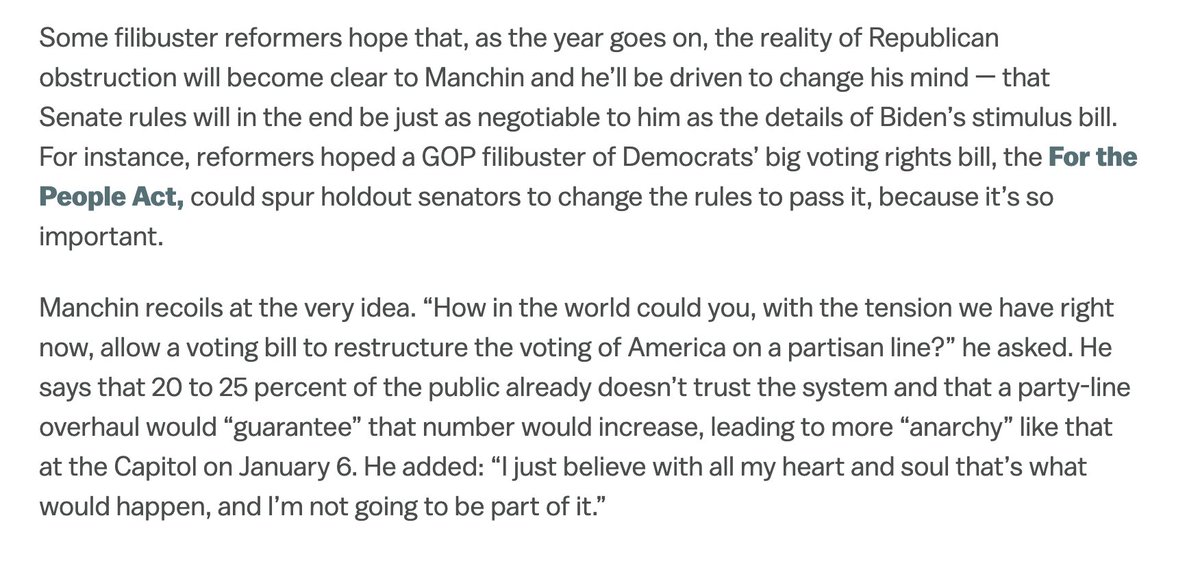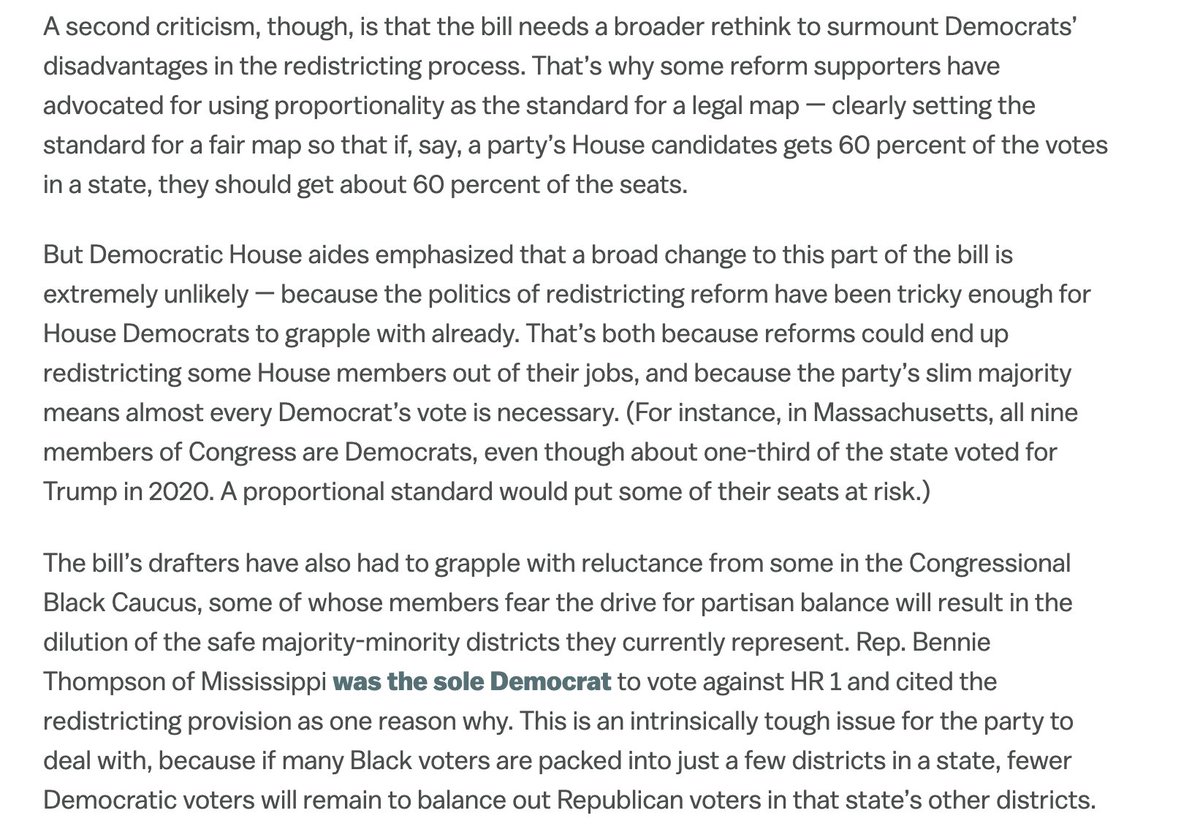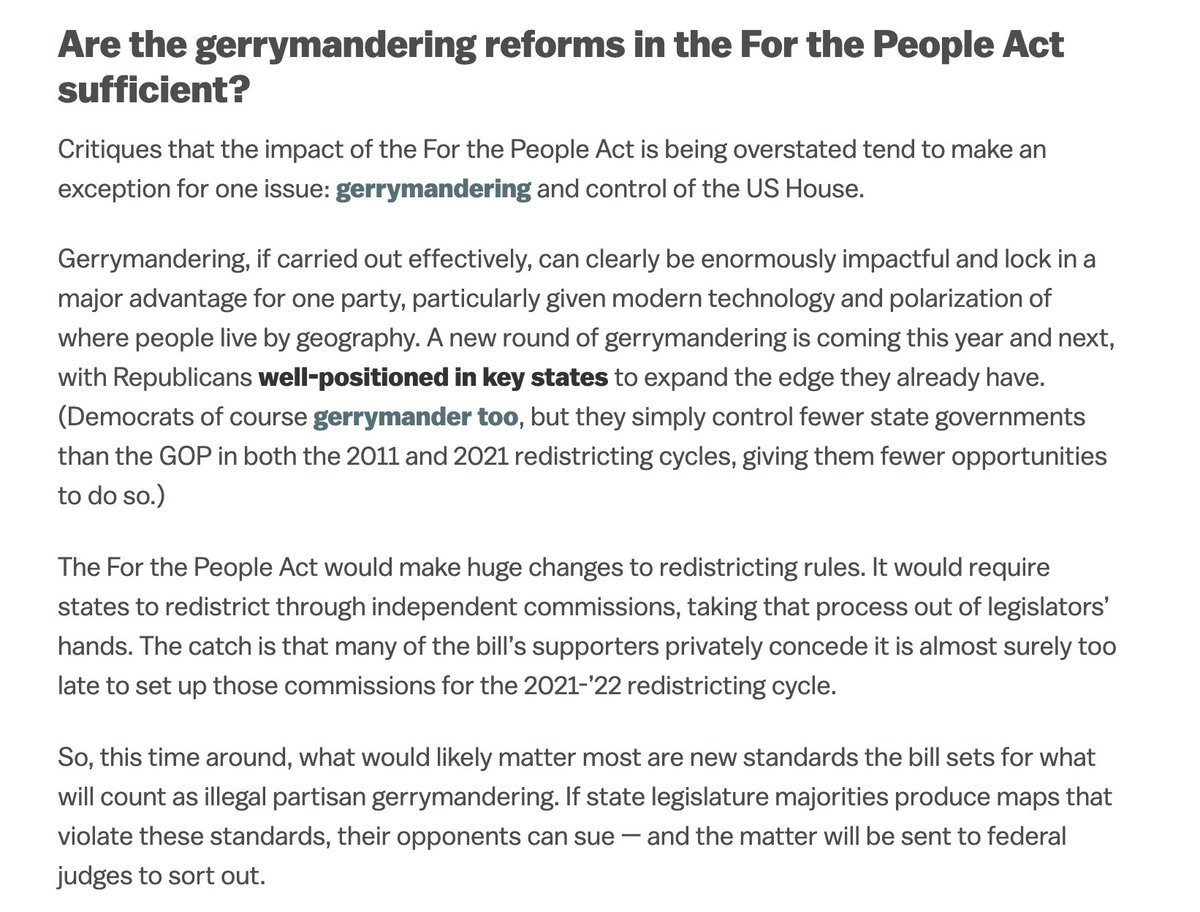
McConnell on a 1/6 commission will be telling about how subservient he feels he must be to Trump at this point.
https://twitter.com/sahilkapur/status/1394719707270352902
McConnell was furious about 1/6, his wife quit the Cabinet, and "sources" talked a big game about consequences for Trump.
In the end he voted against conviction, saying it's because he doesn't think he can convict a former president.
In the end he voted against conviction, saying it's because he doesn't think he can convict a former president.
Lately, McConnell has avoided Liz Cheney-ing, and has fully embraced the "GOP must unite and look forward so we can win in 2022" mindset.
But if he wants to put at least one obstacle in the way of Trump coming back in 2024, the commission could be a way to do that.
But if he wants to put at least one obstacle in the way of Trump coming back in 2024, the commission could be a way to do that.
Like a good party leader, McConnell is said to be following his senators lately. There was dissension in the ranks about his anti-Trump criticism after 1/6 and that helped spur him to back down.
But he could likely find 9 R senators to back a commission if he wanted to.
But he could likely find 9 R senators to back a commission if he wanted to.
The problem of course is that the commission's findings will surely reflect poorly on Trump, and Republicans believe that that will hurt them electorally. And usually on these types of things, the pragmatic / cynical / calculating side of McConnell wins out.
• • •
Missing some Tweet in this thread? You can try to
force a refresh



